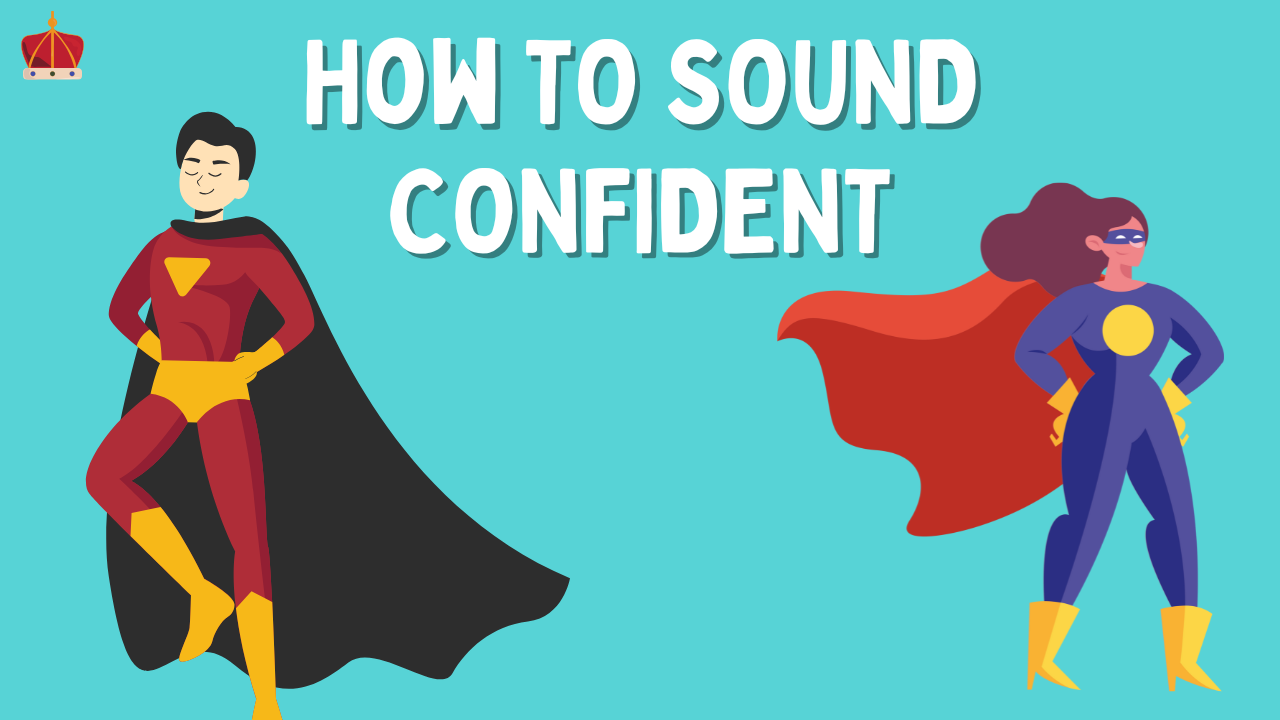
How to Sound More Confident Speaking English: Tips That Really Work
Have you ever listened to someone speak English and thought, “Wow, they sound so confident”? Maybe you’ve wondered how they do it—and how you can sound that way, too. I’m Oliver from the Easy English Podcast, and today, we’re diving into a topic that can transform how you speak: how to sound confident in English.
🎯 What You’ll Learn in This Article:
- How to improve your intonation
- Words and phrases that weaken your English
- The power of pausing
- How body language affects your confidence
- A simple speaking exercise to build confidence
- A vocabulary list to boost your speaking skills
🎧 Why Some People Sound More Confident in English
You might feel like your voice sounds weak or unsure when you speak English. Maybe you pause a lot, or your sentences don’t come out as clearly as you’d like.
Here’s the truth: sounding confident has nothing to do with being perfect. It’s all about small changes that have a big impact.
Let’s go step by step—and don’t forget to look out for today’s featured vocabulary list below!
🗣 Vocabulary to Know Before You Start
- Assertive – Confidently expressing your opinions
Example: She was assertive in the meeting and made sure her ideas were heard. - Intonation – The rise and fall of your voice when speaking
Example: Your intonation can make you sound more confident or unsure. - Hesitation – Pausing or showing uncertainty when speaking
Example: Too much hesitation can make you sound less confident. - Articulate – Speaking clearly and effectively
Example: He is very articulate, so people respect what he says. - Self-assured – Having belief in yourself
Example: Even when nervous, she appeared self-assured and calm.
💬 Tip 1: Focus on Your Intonation
Intonation is the music of English. If your voice is too flat or always rising (like a question), it can sound like you’re unsure—even if your words are correct.
✅ Confident example:
“I think that’s a great idea.”
❌ Less confident example:
“I think that’s a great idea?”
Practice using a steady, falling intonation at the end of your sentences. It makes a big difference!
🚫 Tip 2: Avoid Weak Words and Phrases
Certain common words actually weaken your speech. These include:
- “Maybe”
- “Kind of”
- “Sort of”
- “Just”
- “I think”
- “I’m not sure”
Compare these two sentences:
❌ “Maybe we could just go to the park, if you want?”
✅ “Let’s go to the park. It’ll be nice to get some fresh air.”
The second version sounds direct, clear, and confident.
🐢 Tip 3: Slow Down and Pause
A big mistake many learners make is trying to speak quickly to sound fluent. But speaking fast often leads to more mistakes—and less confidence.
Instead, pause between your sentences. It gives you time to think and your listener time to understand.
✅ Confident: “I was thinking we could go later. Does that work for you?”
❌ Less confident: “I wasthinkingmaybewecouldgolateristhatokay?”
Slow down. It’s not a race.
🧠 Tip 4: Don’t Worry Too Much About Filler Words
Words like “um,” “uh,” “like” appear in most people’s speech—even native speakers! Try to reduce them, especially in formal situations, but don’t worry if a few slip out.
In fact, natural speech includes imperfections. That’s why I don’t fully script my podcast—because I want you to get used to real English, not robotic speech.
💪 Tip 5: Use Body Language (Yes, Even in English!)
Even though you might be focused on your words, how you stand or sit also affects your voice. When speaking in person:
- Stand or sit tall – Good posture improves your voice quality.
- Make eye contact – It shows confidence and connection.
- Use hand gestures – They make your speech more engaging.
Body language can make your English not only sound better but feel better too.
🔁 Tip 6: Practice Makes Confidence
Confidence comes from familiarity. The more you speak, the more natural it becomes.
Here’s a quick exercise:
- Record yourself speaking for one minute on any topic.
- Listen back—do you sound hesitant?
- Try again with more energy and confidence.
You’ll be amazed at the difference!
✅ Final Thoughts: You Can Sound Confident in English
Sounding confident in English isn’t about knowing every word—it’s about how you say what you already know. Focus on:
- ✅ Intonation
- ✅ Clear and direct language
- ✅ Pausing instead of rushing
- ✅ Strong body language
- ✅ Regular speaking practice
With consistent effort, you’ll start to sound more self-assured, more fluent, and yes—more like a native speaker.

